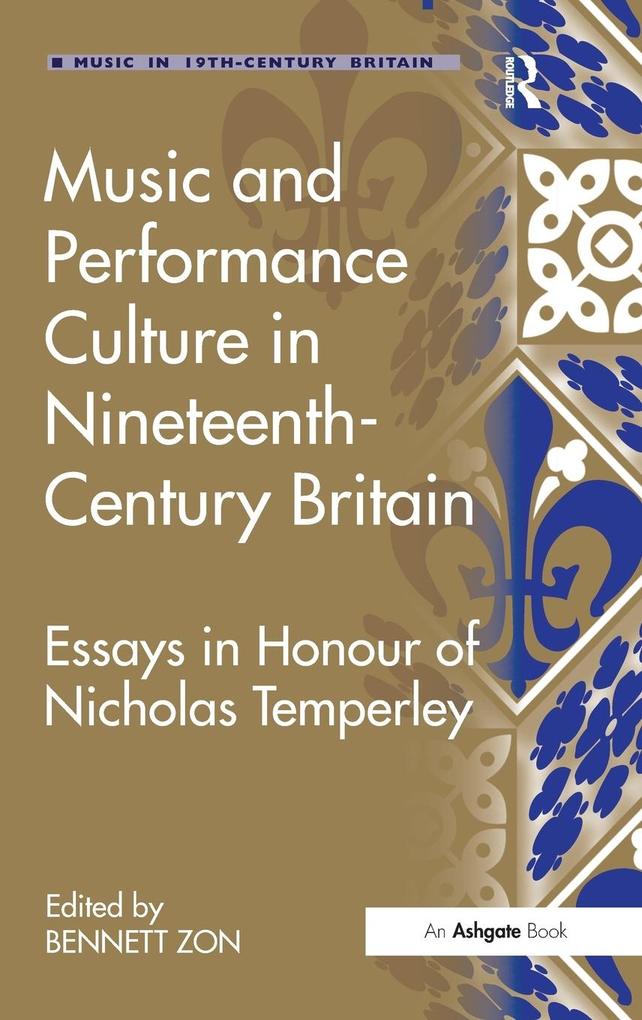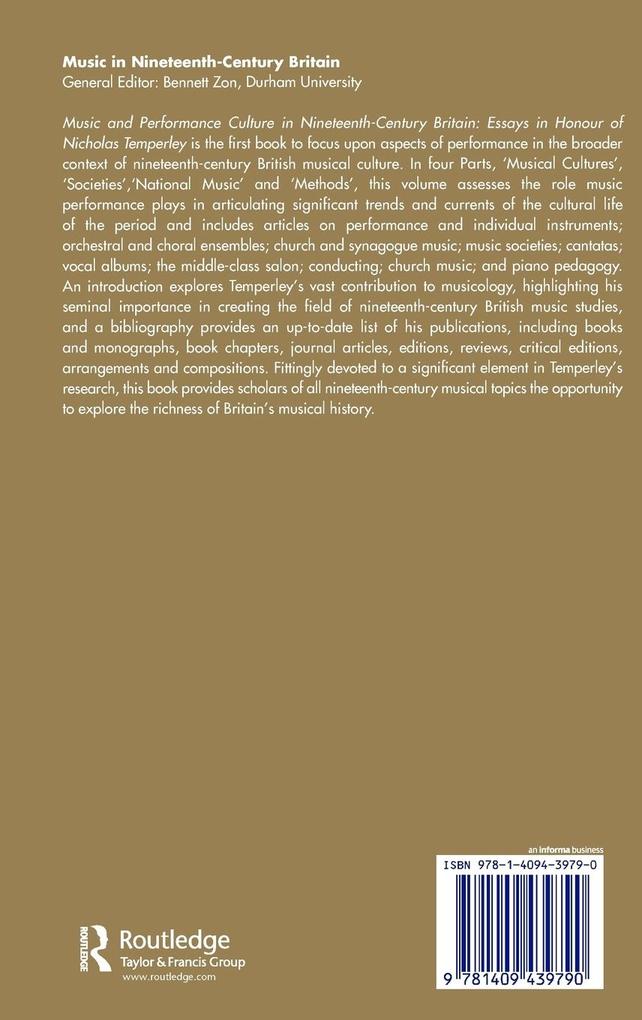
Zustellung: Sa, 26.07. - Mi, 30.07.
Versand in 7 Tagen
VersandkostenfreiBestellen & in Filiale abholen:
This is the first book to focus upon aspects of performance in the broader context of nineteenth-century British musical culture. An introduction explores Nicholas Temperley's vast contribution to musicology, highlighting his seminal importance in creating the field of nineteenth-century British music studies, and a bibliography provides an up-to-date list of his publications, including books and monographs, book chapters, journal articles, editions, reviews, critical editions, arrangements and compositions.
Inhaltsverzeichnis
Contents: Introduction, Bennett Zon; Part I Musical Cultures: Hidden agendas and the creation of community: the violin press in the late 19th century, Christina Bashford; Joining up the dots: cross-channel models in the shaping of London orchestral culture, 1895-1914, Leanne Langley; Charles Garland Verrinder and music at the West London Synagogue, 1859-1904, Susan Wollenberg; Music, morality, and rational amusement at the Victorian middle-class soirée, Derek B. Scott. Part II Societies: Trial by dining club: the instrumental music of Haydn, Clementi and Mozart at London's Anacreontic Society, Simon McVeigh; Performance in private: 'the Working Men's Society' and the promotion of progressive repertoire in 19th-century Britain, Michael Allis; American songs, pastoral nationalism, and the English Temperance cantata, Charles Edward McGuire. Part III National Music: The British vocal album and the struggle for national music, Peter Horton; Musicking Caractacus, Julian Rushton. Part IV Methods: The conductor at the organ, or how choral and orchestral music was directed in Georgian England, Peter Holman; Willian Cole's view of modern psalmody, Sally Drage; Samuel Wesley and the development of organ pedals in England, Philip Olleson; Recapitulation and the musical education of Victorian children: The Child's Pianoforte Book (1882) by H. Keatley Moore, Bennett Zon; Nicholas Temperley publications; Index.
Produktdetails
Erscheinungsdatum
28. Mai 2012
Sprache
englisch
Seitenanzahl
368
Herausgegeben von
Bennett Zon
Verlag/Hersteller
Produktart
gebunden
Gewicht
716 g
Größe (L/B/H)
240/161/24 mm
ISBN
9781409439790
Entdecken Sie mehr
Bewertungen
0 Bewertungen
Es wurden noch keine Bewertungen abgegeben. Schreiben Sie die erste Bewertung zu "Music and Performance Culture in Nineteenth-Century Britain" und helfen Sie damit anderen bei der Kaufentscheidung.










